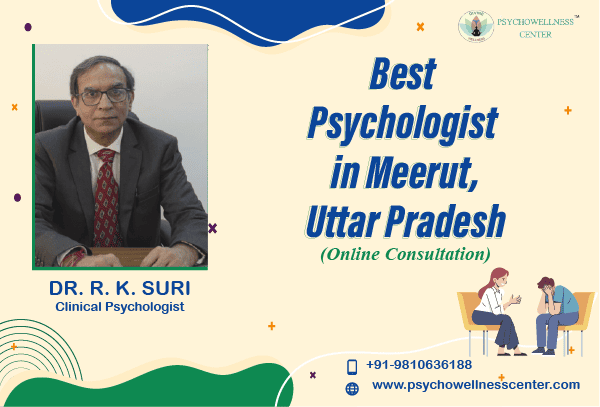Coping With Mental Health Issues

An issue with mental
health negatively impacts a
person's cognitive, emotional, or social abilities. There are various types of
mental health issues, each of which can have varying degrees of severity. For
example; depression, anxiety, bipolar illness, schizophrenia, personality disorder, eating problems, and psychosis The fact that someone hasn't been diagnosed with a
mental health condition doesn't mean their mental health is in good shape.
Similarly, it is possible to be diagnosed with a mental health condition while
feeling fine in other areas of life. Individuals experiencing a mental health
issue can and do recover to optimal mental health when they receive the right
combination of treatment
of medication, Online Therapy /
Online
Counselling, and support, and when they have
a voice in decisions about their care.
The
ability to maintain good mental health requires the creation of protective factors,
the reduction of risk factors, and the removal of barriers to seeking help.
Mental health is more complicated than simply being healthy or sick. Individual
optimal mental health is at one end of the continuum, represented by feeling
good and functioning well, while mental health issues are on the other hand,
represented by changes in thoughts, feelings, or behaviors. Over the course of
a person's life, they may progress from optimal mental health and well-being to
illness and recovery.
Following are the coping or Self-Care Strategies for better Mental Health &
well-being at Best Online Counselling
Platform
Value yourself: Be understanding and respectful to yourself, and avoid self-criticism. Make time for your favorite hobbies and projects, or broaden your horizons. Does a daily crossword puzzle, start a garden, learn to dance, play an instrument, or learn another language.
Take
care of your body:
Taking care of your body can help your mental health. Make certain to, consume
nutritious foods, smoking and cigarette should be avoided, and help to consume
plenty of water, exercise can help reduce depression and anxiety while also
improving mood, and get enough rest. Sleep deprivation, according to
researchers, contributes to the high rate of depression among college students.
Surround
yourself with positive people: People
who have strong family or social ties are generally healthier than those who do
not.
Give
yourself the following; Volunteer your time and energy to assist others. You'll
feel good knowing you've done something tangible to help someone in need, and
it's a great way to meet new people.
Understand
how to deal with stress: Stress is an
unavoidable part of life, whether you like it or not. Try One-Minute Stress
Strategies, exercise, go for a nature walk, play with your pet, or try journal
writing as a stress reliever. Remember to laugh and see the humor in life.
Laughter has been shown in studies to boost your immune system, relieve pain,
relax your body, and reduce stress.
Quiet
mind by meditating, practicing mindfulness, or praying, relaxation exercises
and prayer can help you improve your mood and outlook on life. Indeed, studies
show that meditation can help you feel calm and improve the effects of therapy.
See Spiritual Resources for Students for more information on how to connect.
Establish
attainable objectives: Determine your academic, professional, and personal goals and
write down the steps necessary to achieve them. Aim high, but be realistic, and
don't overbook yourself.
As you
work toward your goal, you'll feel a tremendous sense of accomplishment and
self-worth. Wellness Coaching can assist you in developing goals and staying on
track.
Break
up the routine, while routines make us more efficient and increase our feelings
of security and safety, a little change of pace can liven up a dull schedule. Change
your jogging route, go on a road trip, and go for a walk in a different park,
hang some new art, or try a new restaurant.
Stay
away from alcohol and other drugs; limit your alcohol consumption and abstain
from other drugs. Alcohol and other drugs are sometimes used to self-medicate,
but in reality, they only exacerbate problems. See Alcohol and Other Drugs for
more information.
Seek
assistance when necessary, seeking assistance is a sign of strength, not
weakness. It is also critical to remember Mental illnesses can be treated with
the right kind of support; for psychosis illnesses, the right medication under
the right guidance is critical, and for neurosis illnesses, Online Counselling, support, and love from peers and family are critical. Reaching
out or identifying these issues at an early stage is critical.
How to
Deal with Health Issues That Cause Discomfort?
Seek
medical attention- You
may be hesitant to admit that you require treatment. Don't let the fear of
being diagnosed with a mental illness keep you from seeking treatment.
Treatment
can provide relief by identifying the source of the problem and alleviating
symptoms that interfere with your work and personal life.
Don't
let negativity make you feel bad about yourself - Negativity does not come
solely from others. You may believe that your condition is a sign of personal
weakness or that you should be able to control it on your own. Seeking
counseling, learning about your condition, and connecting with others who have
mental illnesses can all help you improve your self-esteem and overcome
destructive self-judgment. Consult with the best online psychiatrist in India
at TalktoAngel, do take medicine as prescribed and online therapies, or consult
the “Best Clinical Psychologist near me” at Delhi NCR,
Dwarka, Janakpuri, Gurugram, NOIDA, etc.
Avoid
isolating yourself - If
you suffer from a mental illness, you may be hesitant to tell anyone. If your
family, friends, or members of your community are aware of your mental illness,
they can offer you support. Reach out to people you trust for the compassion,
understanding, and support you require.
Speak up about stigma - Consider sharing your thoughts at public events, in letters to the editor, or on the internet. It can inspire others facing similar difficulties and educate the public about mental illness.
.png)



SHARE